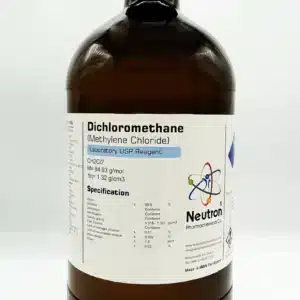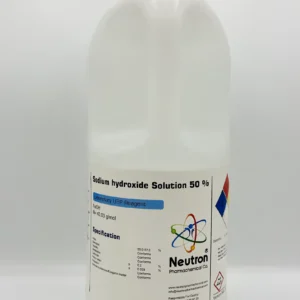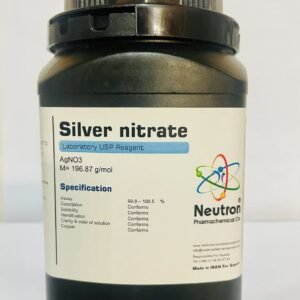Potassium hydroxide 40% solution
Potassium hydroxide 40% solution, often referred to as caustic potash or lye solution, is a highly concentrated aqueous solution of KOH. It is a clear, colorless to slightly cloudy, and viscous liquid with strong alkalinity, commonly used in industrial, laboratory, and technical applications.
🏭⚗️ Production
This concentrated solution is typically prepared by dissolving solid potassium hydroxide pellets into water. The dissolution process is highly exothermic and requires controlled addition and stirring. Once fully dissolved, the solution reaches a concentration of around 40%. It is usually stored in plastic containers, as glass may be attacked over time.
🔬 Properties
Potassium hydroxide solution at 40% concentration is dense and viscous, with a density ranging approximately between 1.29 and 1.47 g/mL. It has a boiling point close to 100 °C and is strongly alkaline with a pH near 14. The solution is corrosive, highly hygroscopic, and absorbs moisture and carbon dioxide from the air, which can degrade its quality. It must be stored in airtight containers. Its viscosity is significantly higher than that of water, making it thick and slow-flowing.
🧪 Applications
• Industrial: Used in the manufacture of soaps and detergents, as a catalyst in chemical synthesis, in petroleum refining, textile processing, battery production, and as a pH regulator in various formulations.
• Laboratory: Functions as a strong base in acid-base titrations, pH control, reagent preparation, and chemical analysis.
• Cleaning & Maintenance: Effective in degreasing, cleaning laboratory glassware, and dissolving organic residues.
• Water treatment: Utilized to adjust pH and soften water in boiler and cooling systems.
• Food processing (industrial scale): Approved for regulated use in peeling fruits and vegetables, chocolate processing, and in preparing lye-treated baked goods like pretzels.





